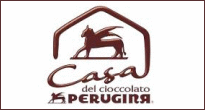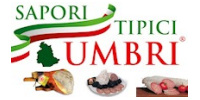Our network:
Sunday 21 December 2025
Extra Virgin Olive Oil selling
Olive trees cover many of Umbria's low-lying hills, giving the landscape that particular silvery green colour. Olives grow in a specific environment where, helped by the skills of the local inhabitants and the weather, they produce the region's famed high quality extra virgin olive oil.
The different high-quality organic cultivations are differentiated according to soil, the taste of the oil and the methods adopted. All these factors represent a guarantee, which is expressed by D.O.P label: Umbria appellation contrôlée.
 |
- The history :
The olive tree was cultivated by Etruscans since VI century b.C. The olive characterizes the landscapes of the Umbria hills, it adorns farm houses, village and towns. The lobour, care and love dedicated to this tree are rewarded by its product, oil, with its exclusive and irreplaceable qualities and features.
This "jewel" from Perugia's area must have a distinctive green colour, with a full fruity taste, an aromatic scent without any defect. The oils of those farms that join to Perugia-Quality periodically undergo chemical analyses and panels. The results confirm the high quality, and the very low presence of acidity (less than 0,3%), so that all the production from Perugia is widely into the parameters of the extra virgin olive oil.
The importance of some analyses of extra virgin olive oil :
The acidity determines the quality category of the oil.
The peroxides indicate the state of conservation of the oil with specific reference to rancidity: the lower the number of peroxides, the better the quality of the oil. Beyond the limit of 20 meq. O2/kg the oil cannot be sold for human consumption.
By means of U.V. spectrum analysis a mechanically extracted oil can be distinguished from one extracted by chemical solvents; also, the stata of oxidation can be determinad. Industrially extracted oils have high K and Delta K values.
The tocopherols indicate the Vitamin E content. They are an index of the quality of the oil, act as antioxidants (i.e., they protect the oil from ageing) and are of great nutritional importance.
The acidic composition is extremely important in ascertaining whether an oil is genuine. The presence of some fatty acids that do not appear in oil extracted from olives or a different value compared with those normally present in olive oil can reveal the addition of oil from other sources.
The polyphenols affect positively the taste of the oil and also act as antioxidants. They are also nutritionally important for the human diet.
The refraction index is another way of defining the genuineness of an oil.
Advice for conserving extra virgin olive oil :
NO: exposure to heat; NO: exposure to light; NO: transparent bottles; NO: uncapped bottles – not full; YES: in a cool place; YES: in the dark; YES: UV light - proof bottles; YES: capped, full bottles
- The importance of some analyses of Umbrian Extra Virgin Olive Oil
- Advice for conserving Umbrian Extra Virgin Olive Oil
Extra virgin olive oil in the province of Perugia
A unique taste, a pleasant aroma and a dark green colour are the key-features of local olive oil, highly prized on account its low acidity level (less than 1% and sometimes even close to 0%). The environmental conditions, the weather, the exposure to the sun and the nature of soil contribute to the high-quality of local oil. Bruschetta is the best way to taste olive oil. It is a slice of local toasted bread rubbed with a clove of garlic and soaked in olive oil.
Where to Buy
 |
• Extra virgin olive oil for sale. Buy online or come and see us in Assisi.
Web site languages: Italiano English
| Up |
General information
• Assisi World Heritage • Churches
• Associations & Groups
• History
• Tourist Guides and visit guided in Umbria
• General travel tips
• Useful - emergency numbers
• Weather information
• Lyrick Theatre Assisi
• Metastasio Theatre Assisi
• Local opening times
• Churches of Assisi
Transport in town
• Streets of Assisi • Traffic restrictions
• Parking Mojano - historic centre
• Parking (others)
• Buses & Taxis
• Town map
• How to reach Assisi by car
• How to reach Assisi by Train
• How to reach Assisi by Air
Transport out of town
• Airport • Rent-a-car
• Local and national buses
Where to Stay
• Hotel Panda • Holiday Farm Colle degli Olivi
• Map of Hotels in Assisi

Where to eat and drink
• Restaurant Colle degli Olivi • Restaurants Map of Assisi area
Education
• Italian Language School for Foreigners • University
Art and monuments
• The Rocca Maggiore • Temple of Minerva
• Palazzo Capitano del Popolo
• Roman Amphitheatre
Art and religion
• Eremo delle Carceri • The Basilica of St Francis and the Sacro Convento
• The Basilica of Santa Maria degli Angeli
• The Basilica of St Claire
• Abbey of St. Pietro
• St. Damian's Convent
• St. Rufino Cathedral
• Church of Santa Maria Maggiore
• St. Francis of Assisi - 2, 3 and 4 October

News from Assisi
Sorry, non news - i soggetti interessati a far conoscere le iniziative che avranno luogo nell'ambito del territorio comunale sono invitati a darne comunicazione con congruo anticipo utilizzando l'email redazione@umbriaonline.com


What to see & do
• 4th OCTOBER, Feast of San Francesco of Assisi • Italian Language School for foreigners
• Park of Colfiorito
• Perugino exhibition and the Porziuncola chapel in Santa Maria degli Angeli - Assisi
• Golfing holidays
• Assisi Farm Stay Colle degli Olivi
• Sapori Tipici Umbri, buy now
Lake Trasimeno
• General Information Lake Trasimeno • The islands - boat tours Lake Trasimeno
• Eating well by Lake Trasimene
• Where to stay by Lake Trasimene
• Bathing - Lake Trasimeno
• Mooring Lake Trasimeno
• Navigation regulations
• Mercati Ittici
Specials - In & Out of town
• Weddings in Umbria • Wellness in Umbria - Assisi area
• Honeymooning in Umbria

Typical products
• Sapori Tipici Umbri • Norcia Ham IGP
• Mushrooms selling
• Truffles selling
• Extra Virgin Olive Oil selling
• Wine selling
Museums and galleries
• The Porziuncola Museum • Cathedral Museum and Crypt of St Rufino
• Municipal Art Gallery
• Treasure Museum & F.M. Perkins Collection
• Civic Museum & Roman Forum
Art and tourist attractions
• Forest of Saint Francis - Assisi - FAI • Along Via San Francesco
• Park of Mount Subasio
• The Calendimaggio :
the Ides of May Festivity







